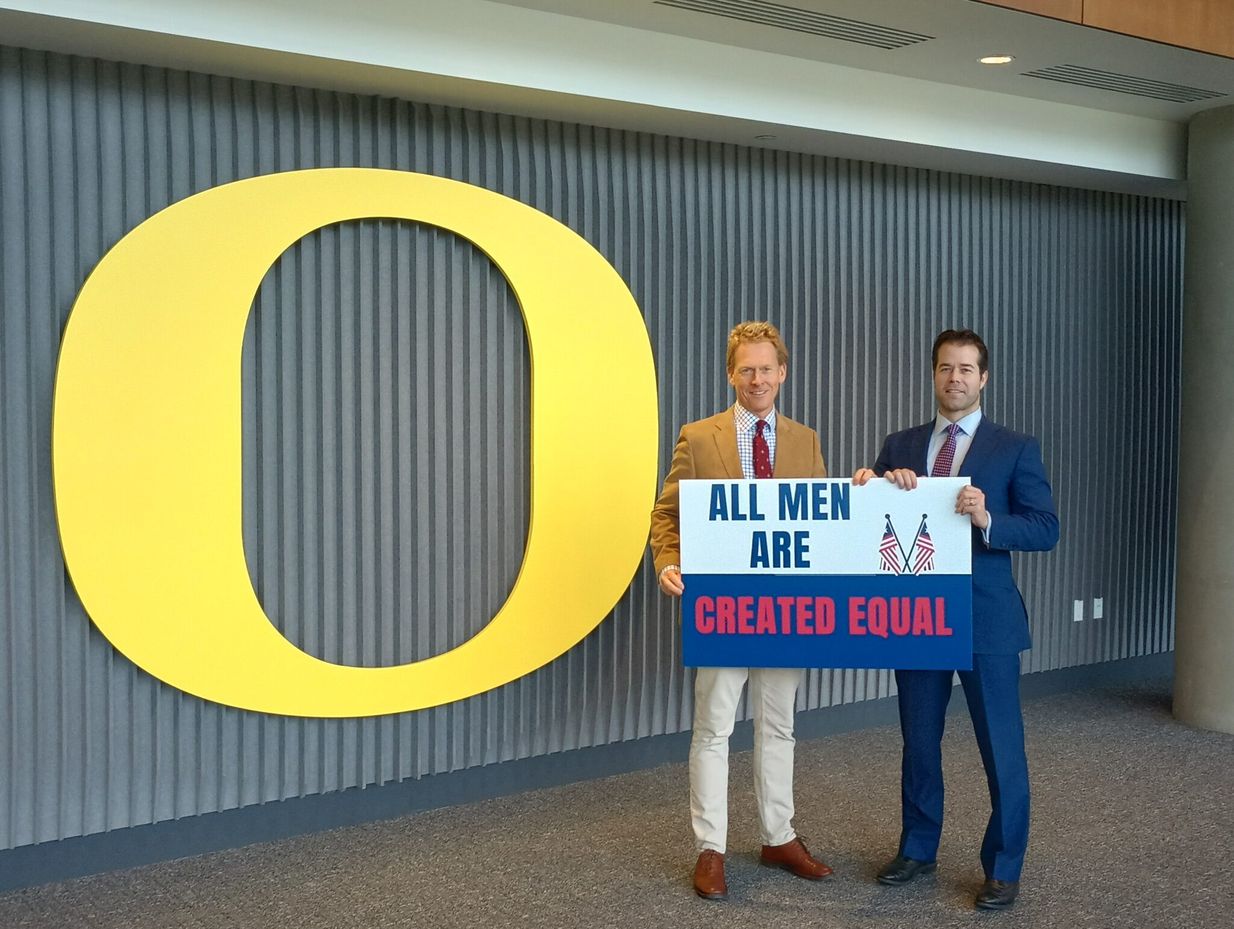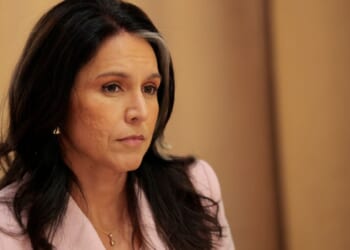
The University of Oregon must pay $191,000 in attorneys’ fees to settle a lawsuit filed by a conservative professor who was blocked from the diversity office’s social media account after posting “all men are created equal.”
U.S. Magistrate Judge John V. Acosta awarded the money after the university agreed in March to overhaul its free-speech policies in response to a claim three years ago by Bruce Gilley, a Portland State University political science professor, against the communications manager for the UO Division of Equity and Inclusion.
The manager, Tova Stabin, blocked Mr. Gilley from the @UOEquity account on X in June 2022 after he posted “all men are created equal” in response to her “racism interrupter” prompt, which asked users to fill in the following blank: “It sounds like you said (blank). Is that what you meant?”
The agreed-upon fees bring the cost of resolving the case to at least $724,000, including the $533,000 paid by the university to its own attorneys as of November, according to the Institute for Free Speech.
The institute chided the university for its “stubborn defense of DEI officials.”
“This fee award reflects the substantial resources required to vindicate fundamental constitutional rights in the digital age, as well as the vigor with which the University of Oregon chose to defend unconstitutional policies,” said Del Kolde, an institute senior attorney, in a Tuesday statement.
“The university made a costly decision to prioritize DEI principles over constitutional principles, aggressively litigating this case for nearly three years rather than acknowledging the obvious — that blocking someone for quoting the Declaration of Independence violates the First Amendment,” he said.
The university admitted no liability or responsibility in the settlement agreement, but did agree to clarify its social media guidelines to allow constitutionally protected content, including speech considered “hateful,” “offensive” or “racist.”
University officials also agreed to implement a process for users to challenge posts blocked on the account and hold annual training for managers to “educate them on the requirements of the social media guidelines and the First Amendment.”
“Oregon taxpayers and UO alumni should question why university officials spent such enormous sums defending the indefensible, especially when the university ultimately agreed to the very reforms professor Gilley had sought from the beginning,” said Angus Lee, Mr. Gilley’s local counsel.
NEW – University of Oregon’s insurer must pay $191,000 in attorney fees in the wake of @InstFreeSpeech client @BruceDGilley’s settlement victory. Total cost of UO’s unconstitutional censorship: at least $724,000+. DETAILS: https://t.co/1sYex6JG5k #freespeech
— Tom Garrett (@TomGarrettIFS) June 17, 2025
The university will also be subject to judicial oversight for 180 days to ensure implementation.
“Our victory establishes important protections for free speech in the University of Oregon’s digital spaces,” said Mr. Gilley in a statement. “The university could have avoided significant public expense by simply respecting the Constitution from the beginning. Perhaps the high price of this defeat will make UO and other public universities think twice before violating First Amendment rights.”
Mr. Gilley is no stranger to such issues. He ignited an international firestorm with his 2017 essay, “The Case for Colonialism,” published in the Third World Quarterly, which was withdrawn following threats against the editor and the resignations of 15 of the editorial board’s 34 members.
He founded the Oregon chapter of the National Association of Scholars, the conservative education group that publishes Academic Questions, a quarterly journal where “The Case for Colonialism” was republished in 2018.
Mr. Gilley took a sabbatical from Portland State during the 2024-25 academic year to serve as the Presidential Scholar in Residence at the New College of Florida, a public honors institution being revamped as a haven for conservative classical thought under Florida Gov. Ron DeSantis.
New College President Richard Corcoran said in last year’s announcement that “Dr. Gilley’s scholarship in political science and public policy is exemplary, and his willingness to engage challenging and controversial topics in his work is welcome in the academic environment of free speech and civil discourse at New College.”

















